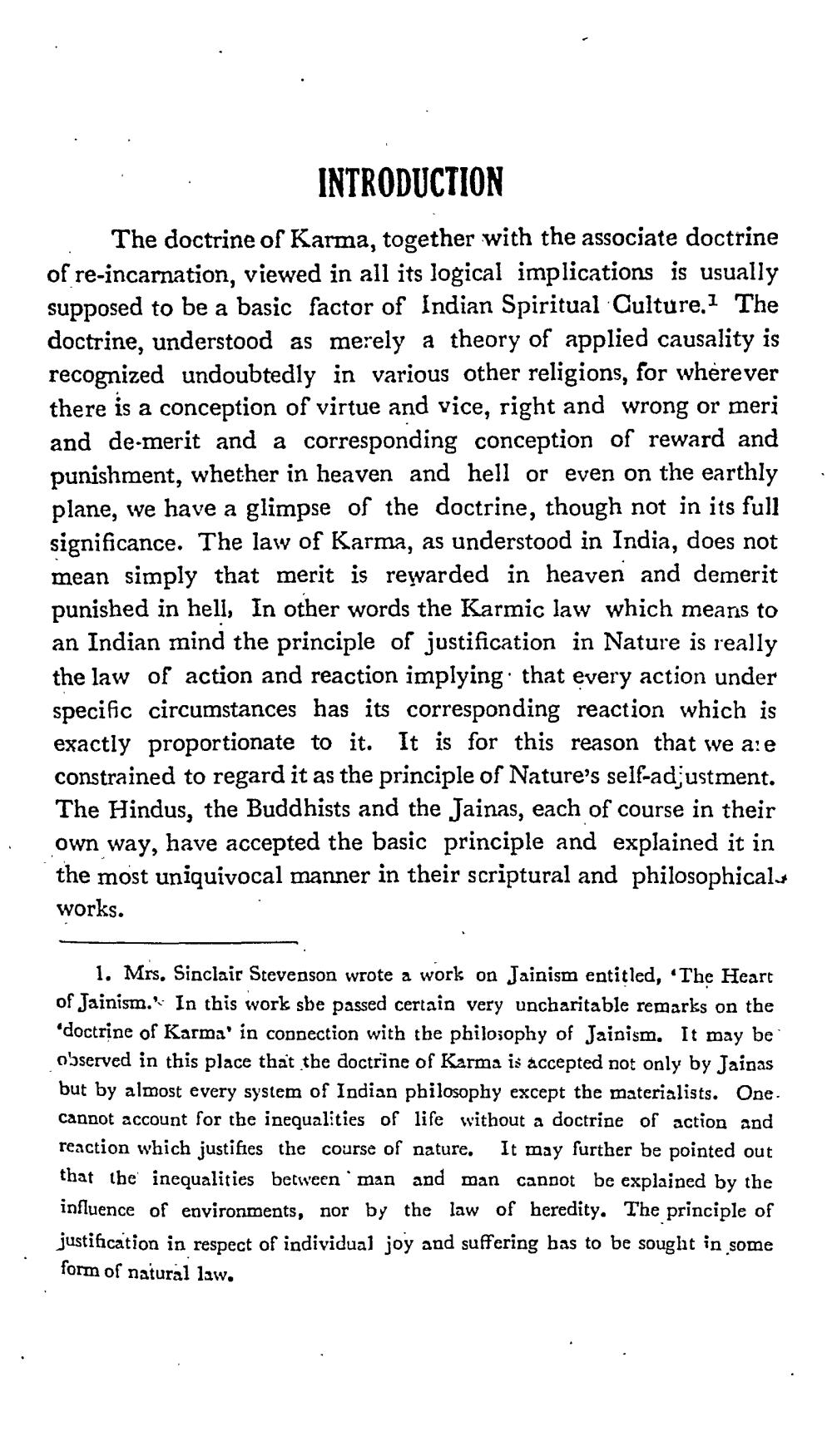________________
INTRODUCTION
The doctrine of Karma, together with the associate doctrine of re-incarnation, viewed in all its logical implications is usually supposed to be a basic factor of Indian Spiritual Culture.1 The doctrine, understood as merely a theory of applied causality is recognized undoubtedly in various other religions, for wherever there is a conception of virtue and vice, right and wrong or meri and de-merit and a corresponding conception of reward and punishment, whether in heaven and hell or even on the earthly plane, we have a glimpse of the doctrine, though not in its full significance. The law of Karma, as understood in India, does not mean simply that merit is rewarded in heaven and demerit punished in hell, In other words the Karmic law which means to an Indian mind the principle of justification in Nature is really the law of action and reaction implying that every action under specific circumstances has its corresponding reaction which is exactly proportionate to it. It is for this reason that we a:e constrained to regard it as the principle of Nature's self-adjustment. The Hindus, the Buddhists and the Jainas, each of course in their own way, have accepted the basic principle and explained it in the most uniquivocal manner in their scriptural and philosophical works.
1. Mrs. Sinclair Stevenson wrote a work on Jainism entitled, 'The Heart of Jainism. In this work she passed certain very uncharitable remarks on the 'doctrine of Karma' in connection with the philosophy of Jainism. It may be observed in this place that the doctrine of Karma is accepted not only by Jainas but by almost every system of Indian philosophy except the materialists. Onecannot account for the inequalities of life without a doctrine of action and reaction which justifies the course of nature. It may further be pointed out that the inequalities between man and man cannot be explained by the influence of environments, nor by the law of heredity. The principle of justification in respect of individual joy and suffering has to be sought in some form of natural law.
•




